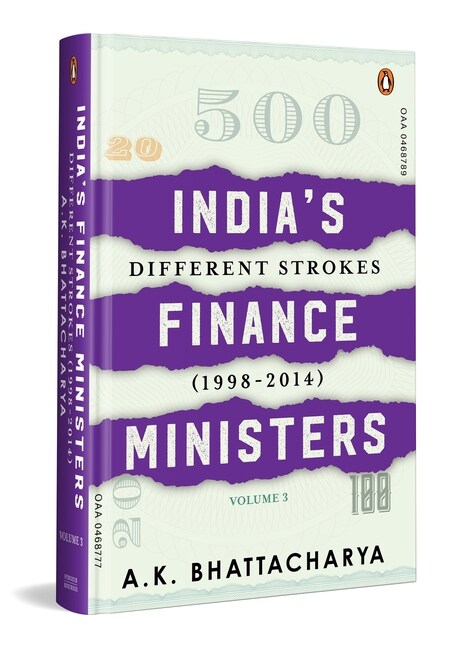
The period between 1998 to 2014 saw just four finance ministers present the Union Budget. This appears to be "a sign of a maturing polity". In his latest book 'India's Finance Ministers: Different Strokes (1998-2014)', author and journalist AK Bhattacharya traces evolution of the government's fiscal and economic policies in the 16-year period.
The third volume of Bhattacharya's series delves deep into relationships between former prime ministers and their finance ministers across political regimes. It outlines equations within party lines to unfold how decisions were influenced by supremos.
Former President and erstwhile finance minister, Pranab Mukherjee, is one of the key personalities who form chapters of Bhattacharya's book. In the introduction, the author mentions how Mukherjee's second term as finance minister would be remembered for the levy of a retrospective tax on foreign companies for taking over Indian entities, which came to be known as the Vodafone tax.

Here is an excerpt:
(Pranab) Mukherjee's fourth Budget under the Manmohan Singh government would be remembered not for what he announced through his Budget speech, but for what a closer reading of his Budget documents revealed a little while after he had read out his long speech. Experts soon realized that his Budget had contained a controversial provision for a retrospective amendment in the direct taxes law that would allow the government to tax overseas companies on their share transactions involving companies with substantial and operating assets within the Indian jurisdiction.
The retrospective amendment became necessary after the owners of Hutchison Essar Limited, a mobile phone company operating in India, sold their controlling stake to Vodafone of the UK. The entire transaction took place between two overseas companies—Hutchison Telecom and Vodafone Plc. And since Hutchison Telecom earned a profit by way of capital gains, the Indian tax authorities in 2007 had asked Vodafone to pay tax on the transaction. The notice was challenged in the Bombay High Court, which, however, ruled in favour of the government in its order in December 2008. This led to many other foreign companies paying taxes on such transactions, boosting the government's revenue. However, Vodafone had filed an appeal against the high court order. Three years later, the Supreme Court struck down the earlier order of the Bombay High Court. This meant returning the revenue already collected by the government from many other companies.
Mukherjee believed that taxes needed to be paid on such transactions and he proposed to make an amendment to the tax law which would take effect retrospectively, so that the amended law allowed the government to levy such a tax and there would be no question of any refunds. Many of his ministerial colleagues and even the prime minister had expressed their serious reservations about the new provision of a retrospective amendment to the law and its adverse impact on the country's climate for foreign investment. However, Mukherjee stood his ground and went ahead with the retrospective amendment to the relevant tax laws, which also came to be known as the Vodafone tax. This earned the wrath of the foreign investors and even provoked the BJP to launch a political campaign against tax terrorism and tax uncertainties. But even after the BJP won the 2014 elections, the new regime did not revoke the Vodafone tax, and only gave the assurance that such retrospective amendments to tax laws would not be carried out in future. Mukherjee believed that this was proof of the vindication of his stance in 2012.
Excerpted from India's Finance Ministers: Different Strokes (1998-2014) by AK Bhattacharya with permission from Penguin Random House India.
Book Price: Rs 999.
Essential Business Intelligence, Continuous LIVE TV, Sharp Market Insights, Practical Personal Finance Advice and Latest Stories — On NDTV Profit.























